- Home
- Jr. Horatio Alger
Paul Prescott's Charge Page 3
Paul Prescott's Charge Read online
Page 3
III.
PAUL'S BRILLIANT PROSPECTS.
Two days later, the funeral of Mr. Prescott took place.
Poor Paul! It seemed to him a dream of inexpressible sorrow. His fatherand mother both gone, he felt that he was indeed left alone in theworld. No thought of the future had yet entered his mind. He was whollyoccupied with his present sorrow. Desolate at heart he slipped away fromthe graveyard after the funeral ceremony was over, and took his way backagain to the lonely dwelling which he had called home.
As he was sitting in the corner, plunged in sorrowful thought, there wasa scraping heard at the door, and a loud hem!
Looking up, Paul saw entering the cottage the stiff form of SquireBenjamin Newcome, who, as has already been stated, was the owner.
"Paul," said the Squire, with measured deliberation.
"Do you mean me, sir?" asked Paul, vaguely conscious that his name hadbeen called.
"Did I not address you by your baptismal appellation?" demanded theSquire, who thought the boy's question superfluous.
"Paul," pursued Squire Newcome, "have you thought of your futuredestination?"
"No, sir," said Paul, "I suppose I shall live here."
"That arrangement would not be consistent with propriety. I suppose youare aware that your deceased parent left little or no worldly goods."
"I know he was poor."
"Therefore it has been thought best that you should be placed in chargeof a worthy man, who I see is now approaching the house. You willtherefore accompany him without resistance. If you obey him and read theBible regularly, you will--ahem!--you will some time or other see theadvantage of it."
With this consolatory remark Squire Newcome wheeled about and strode outof the house.
Immediately afterwards there entered a rough-looking man arrayed in afarmer's blue frock.
"You're to come with me, youngster," said Mr. Nicholas Mudge, for thatwas his name.
"With you?" said Paul, recoiling instinctively.
In fact there was nothing attractive in the appearance or manners ofMr. Mudge. He had a coarse hard face, while his head was surmounted bya shock of red hair, which to all appearance had suffered littleinterference from the comb for a time which the observer would scarcelyventure to compute. There was such an utter absence of refinement aboutthe man, that Paul, who had been accustomed to the gentle manners of hisfather, was repelled by the contrast which this man exhibited.
"To be sure you're to go with me," said Mr. Mudge. "You did notcalc'late you was a goin' to stay here by yourself, did you? We've got abetter place for you than that. But the wagon's waitin' outside, so justbe lively and bundle in, and I'll carry you to where you're a goin' tolive."
"Where's that?"
"Wal, some folks call it the Poor House, but it ain't any the worse forthat, I expect. Anyhow, them as has no money may feel themselves luckyto get so good a home. So jest be a movin', for I can't be a waitin'here all day."
Paul quietly submitted himself to the guidance of Mr. Mudge. He was sooccupied with the thought of his sad loss that he did not realize thechange that was about to take place in his circumstances.
About half a mile from the village in the bleakest and most desolatepart of the town, stood the Poor House. It was a crazy old building ofextreme antiquity, which, being no longer considered fit for an ordinarydwelling-house, had been selected as a suitable residence for the town'spoor. It was bleak and comfortless to be sure, but on that very accounthad been purchased at a trifling expense, and that was, of course, aprimary consideration. Connected with the house were some dozen acres ofrough-looking land, plentifully overspread with stones, which might havefilled with despair the most enterprising agriculturist. However, it hadthis recommendation at least, that it was quite in character with thebuildings upon it, which in addition to the house already described,consisted of a barn of equal antiquity and a pig pen.
This magnificent domain was under the superintendence of Mr. NicholasMudge, who in consideration of taking charge of the town paupers hadthe use of the farm and buildings, rent free, together with a stipulatedweekly sum for each of the inmates.
"Well, Paul," said Mr. Mudge, as they approached the house, in a tonewhich was meant to be encouraging, "this is goin' to be your home. Howdo you like it?"
Thus addressed, Paul ventured a glance around him.
"I don't know," said he, doubtfully; "it don't look very pleasant."
"Don't look very pleasant!" repeated Mr. Mudge in a tone of mingledamazement and indignation. "Well, there's gratitude for you. After thetown has been at the expense of providin' a nice, comfortable home foryou, because you haven't got any of your own, you must turn up your noseat it."
"I didn't mean to complain," said Paul, feeling very little interest inthe matter.
"Perhaps you expected to live in a marble palace," pursued Mr. Mudge, inan injured tone. "We don't have any marble palaces in this neighborhood,we don't."
Paul disclaimed any such anticipation.
Mr. Mudge deigned to accept Paul's apology, and as they had now reachedthe door, unceremoniously threw it open, and led the way into a roomwith floor unpainted, which, to judge from its appearance, was used as akitchen.

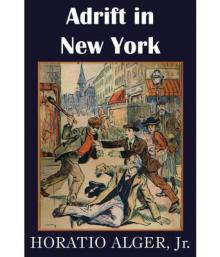 Adrift in New York: Tom and Florence Braving the World
Adrift in New York: Tom and Florence Braving the World Do and Dare — a Brave Boy's Fight for Fortune
Do and Dare — a Brave Boy's Fight for Fortune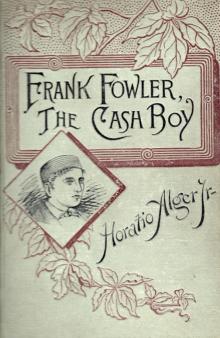 The Cash Boy
The Cash Boy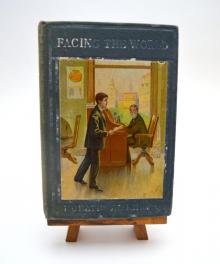 Facing the World
Facing the World The Young Explorer; Or, Claiming His Fortune
The Young Explorer; Or, Claiming His Fortune The Store Boy
The Store Boy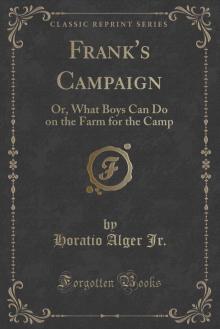 Frank's Campaign; Or, The Farm and the Camp
Frank's Campaign; Or, The Farm and the Camp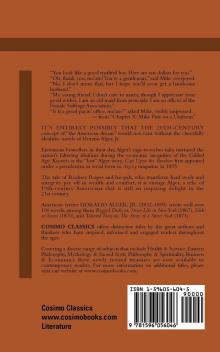 Cast Upon the Breakers
Cast Upon the Breakers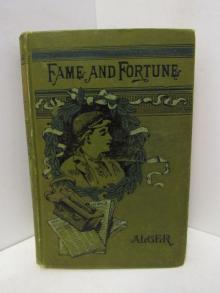 Fame and Fortune; or, The Progress of Richard Hunter
Fame and Fortune; or, The Progress of Richard Hunter The Errand Boy; Or, How Phil Brent Won Success
The Errand Boy; Or, How Phil Brent Won Success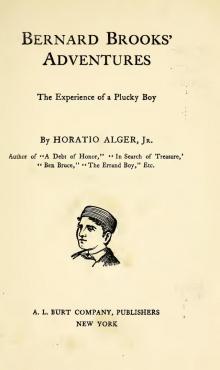 Bernard Brooks' Adventures: The Experience of a Plucky Boy
Bernard Brooks' Adventures: The Experience of a Plucky Boy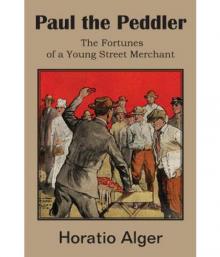 Paul the Peddler; Or, The Fortunes of a Young Street Merchant
Paul the Peddler; Or, The Fortunes of a Young Street Merchant Brave and Bold; Or, The Fortunes of Robert Rushton
Brave and Bold; Or, The Fortunes of Robert Rushton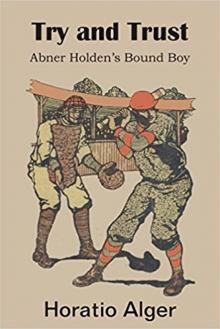 Try and Trust; Or, Abner Holden's Bound Boy
Try and Trust; Or, Abner Holden's Bound Boy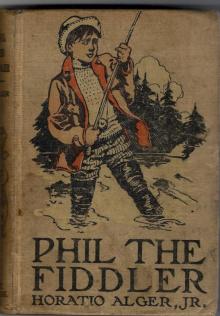 Phil, the Fiddler
Phil, the Fiddler In A New World; or, Among The Gold Fields Of Australia
In A New World; or, Among The Gold Fields Of Australia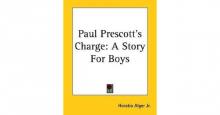 Paul Prescott's Charge
Paul Prescott's Charge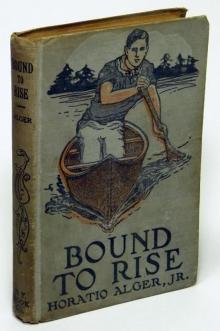 Joe's Luck; Or, Always Wide Awake
Joe's Luck; Or, Always Wide Awake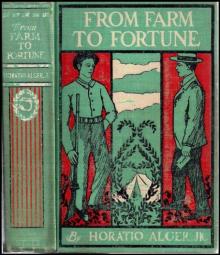 From Farm to Fortune; or, Nat Nason's Strange Experience
From Farm to Fortune; or, Nat Nason's Strange Experience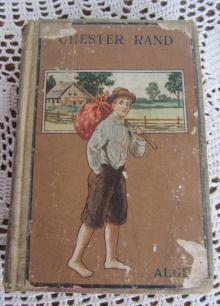 Chester Rand; or, The New Path to Fortune
Chester Rand; or, The New Path to Fortune Driven from Home; Or, Carl Crawford's Experience
Driven from Home; Or, Carl Crawford's Experience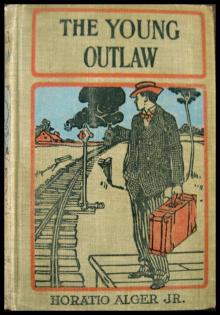 The Young Outlaw; or, Adrift in the Streets
The Young Outlaw; or, Adrift in the Streets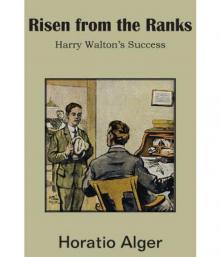 Risen from the Ranks; Or, Harry Walton's Success
Risen from the Ranks; Or, Harry Walton's Success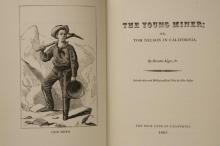 The Young Miner; Or, Tom Nelson in California
The Young Miner; Or, Tom Nelson in California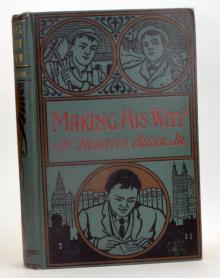 Making His Way; Or, Frank Courtney's Struggle Upward
Making His Way; Or, Frank Courtney's Struggle Upward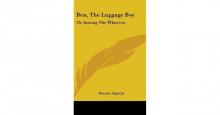 Ben, the Luggage Boy; Or, Among the Wharves
Ben, the Luggage Boy; Or, Among the Wharves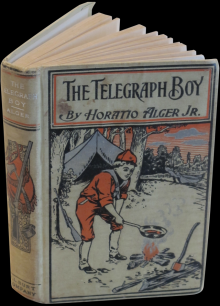 The Telegraph Boy
The Telegraph Boy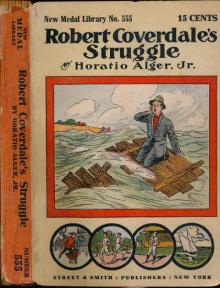 Robert Coverdale's Struggle; Or, on the Wave of Success
Robert Coverdale's Struggle; Or, on the Wave of Success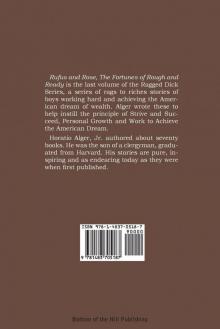 Rufus and Rose; Or, The Fortunes of Rough and Ready
Rufus and Rose; Or, The Fortunes of Rough and Ready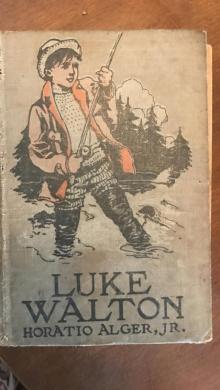 Luke Walton
Luke Walton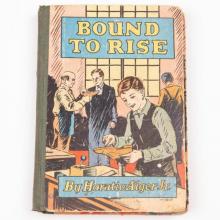 Mark Mason's Victory: The Trials and Triumphs of a Telegraph Boy
Mark Mason's Victory: The Trials and Triumphs of a Telegraph Boy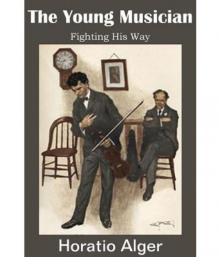 The Young Musician; Or, Fighting His Way
The Young Musician; Or, Fighting His Way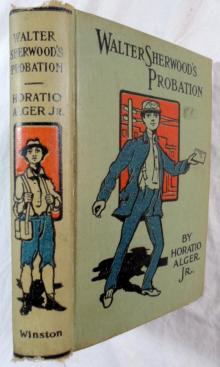 Walter Sherwood's Probation
Walter Sherwood's Probation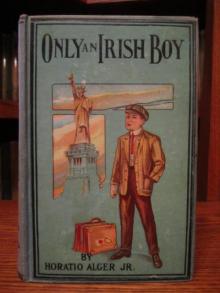 Only an Irish Boy; Or, Andy Burke's Fortunes
Only an Irish Boy; Or, Andy Burke's Fortunes Slow and Sure: The Story of Paul Hoffman the Young Street-Merchant
Slow and Sure: The Story of Paul Hoffman the Young Street-Merchant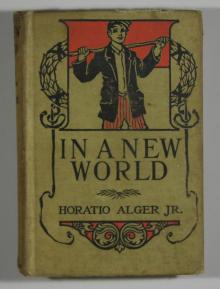 Herbert Carter's Legacy; Or, the Inventor's Son
Herbert Carter's Legacy; Or, the Inventor's Son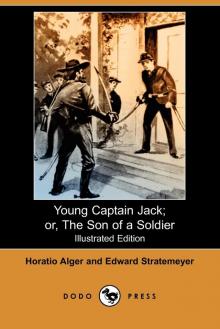 Young Captain Jack; Or, The Son of a Soldier
Young Captain Jack; Or, The Son of a Soldier Timothy Crump's Ward: A Story of American Life
Timothy Crump's Ward: A Story of American Life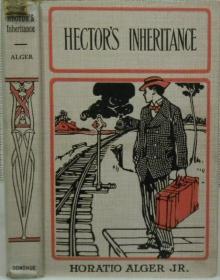 Hector's Inheritance, Or, the Boys of Smith Institute
Hector's Inheritance, Or, the Boys of Smith Institute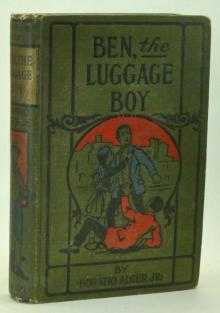 Ben's Nugget; Or, A Boy's Search For Fortune
Ben's Nugget; Or, A Boy's Search For Fortune